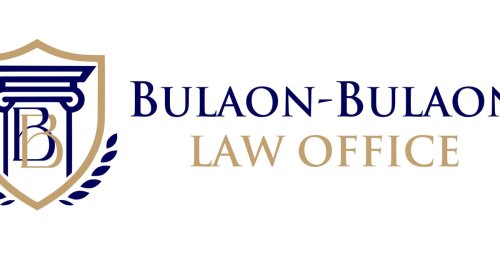Best ADR Mediation & Arbitration Lawyers in San Juan
Share your needs with us, get contacted by law firms.
Free. Takes 2 min.
List of the best lawyers in San Juan, Philippines
About ADR Mediation & Arbitration Law in San Juan, Philippines
Alternative Dispute Resolution (ADR) in San Juan, Philippines, involves resolving disputes without going to court. This process includes methods such as mediation and arbitration, which offer more flexible, efficient, and cost-effective avenues for settling disputes. Mediation allows parties to negotiate a mutually agreed-upon solution with the help of a neutral mediator. Arbitration, on the other hand, involves an arbitrator who listens to both sides before making a binding decision. ADR is especially popular for its confidentiality and the control it offers parties over the outcome compared to traditional litigation.
Why You May Need a Lawyer
Engaging a lawyer who specializes in ADR Mediation & Arbitration can be crucial in various situations. They can offer guidance on the process, rights, and options available to you. Common scenarios include business disputes, family disagreements, labor conflicts, and any situation where maintaining a relationship with the opposing party is desirable. Furthermore, a lawyer can help draft agreements, facilitate mediation sessions, or represent you in arbitration proceedings.
Local Laws Overview
The ADR laws in San Juan are part of the larger ADR system in the Philippines, governed by Republic Act No. 9285, also known as the "Alternative Dispute Resolution Act of 2004." This law encourages the use of ADR to decongest court dockets and promote a more amicable resolution of disputes. Key elements include the recognition of arbitration agreements, enforceability of arbitral awards, and the establishment of the Office for Alternative Dispute Resolution (OADR) as a lead agency to promote ADR across the country.
Frequently Asked Questions
What is the main difference between mediation and arbitration?
Mediation is a collaborative process where a neutral third-party mediator assists the parties in reaching a voluntary agreement. Arbitration, however, involves an arbitrator who listens to both sides and makes a binding decision.
Is ADR mandatory in San Juan, Philippines?
ADR is not mandatory but is highly encouraged as an initial step before resorting to litigation, particularly for civil and commercial disputes.
How long does the ADR process typically take?
The duration of ADR varies depending on the complexity of the dispute and the willingness of the parties to cooperate. Generally, it is faster than traditional litigation.
Will the outcome of an arbitration process be binding?
Yes, arbitration outcomes are typically binding and enforceable in court, similar to a court judgment.
Can I use ADR for family-related disputes?
Yes, ADR, especially mediation, is often used in family-related disputes, including divorce settlements and child custody agreements.
Are ADR proceedings confidential?
Yes, confidentiality is one of the key benefits of ADR, ensuring that the details of the dispute and its resolution are not disclosed publicly.
What happens if ADR fails to resolve a dispute?
If ADR does not result in a resolution, parties can still pursue litigation. The ADR process often helps clarify issues, which can streamline subsequent court proceedings.
Can I have legal representation during ADR?»
Yes, parties are allowed to have legal representation during mediation and arbitration to ensure their rights and interests are protected.
Are arbitrators and mediators regulated in San Juan, Philippines?
Arbitrators and mediators in the Philippines may be accredited by various professional bodies to ensure standards, and parties can select from accredited individuals.
How are mediators and arbitrators selected?
Mediators and arbitrators are chosen based on their expertise, experience, and neutrality. Parties can agree on a specific individual or follow an institutional process to appoint one.
Additional Resources
For further information and assistance, individuals can refer to the Office for Alternative Dispute Resolution (OADR) under the Department of Justice. Additionally, joining local ADR organizations or attending seminars can provide valuable insights and resources for navigating ADR processes.
Next Steps
If you're considering ADR Mediation & Arbitration in San Juan, Philippines, it's advisable to consult with a specialized lawyer to discuss your case and explore your options. Ensure that you gather all relevant documents and information regarding your dispute to facilitate a smoother ADR process. Engage with reliable institutions or professionals for guidance, and consider joining local workshops to better understand the ADR landscape in San Juan.
Lawzana helps you find the best lawyers and law firms in San Juan through a curated and pre-screened list of qualified legal professionals. Our platform offers rankings and detailed profiles of attorneys and law firms, allowing you to compare based on practice areas, including ADR Mediation & Arbitration , experience, and client feedback.
Each profile includes a description of the firm's areas of practice, client reviews, team members and partners, year of establishment, spoken languages, office locations, contact information, social media presence, and any published articles or resources. Most firms on our platform speak English and are experienced in both local and international legal matters.
Get a quote from top-rated law firms in San Juan, Philippines — quickly, securely, and without unnecessary hassle.
Disclaimer:
The information provided on this page is for general informational purposes only and does not constitute legal advice. While we strive to ensure the accuracy and relevance of the content, legal information may change over time, and interpretations of the law can vary. You should always consult with a qualified legal professional for advice specific to your situation.
We disclaim all liability for actions taken or not taken based on the content of this page. If you believe any information is incorrect or outdated, please contact us, and we will review and update it where appropriate.








